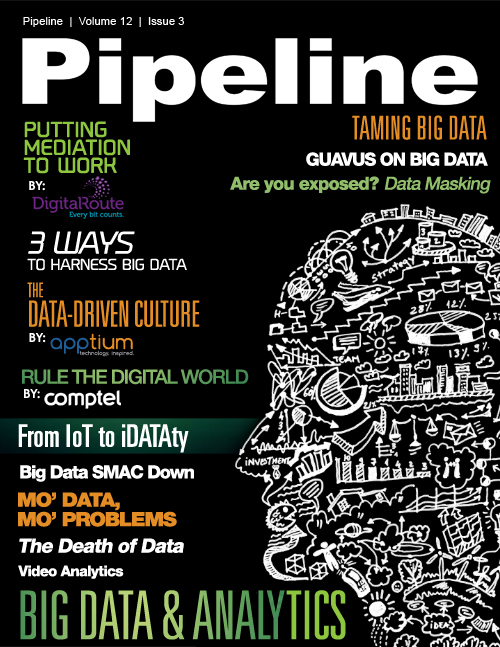The Evolution of Big Data: How Intelligent Fast Data Will Rule the Digital World
For example, if you were tracking mobile data usage in real time, you would be able to identify the exact moment a customer reaches their monthly data cap. With that information in hand, you could proactively spin up an automated offer for a more suitable data package that covers their usage needs and let them continue the service uninterrupted. Imagine how compelling this offer would be to a mobile user who is right in the middle of streaming his favourite TV show.
This is an important evolution from the type of historical analysis common in most marketing analytics platforms. Rather than acting based on past data that may no longer offer an accurate view of the customer’s current interests, intelligent fast data learns continuously from data streams and detects meaningful circumstances in order to ensure you’re relying only on the most immediately relevant perspective of an individual customer.
Intelligent fast data allows you to offer powerful moments of instant gratification, which is exactly what Generation Cloud seeks.
Finding hidden revenue
Advanced analytics applied to big data can serve up intelligent fast data to not only perfectly time marketing offers, but also empower operators to discover untapped monetisation opportunities. Operators are exploring new services and pricing arrangements, from over-the-top (OTT) content bundles, to flat-fee apps, to sponsored data, to device-specific data packages, all to appeal to a new breed of buyer and generate more revenue.
You need a higher level of operational intelligence to find these hidden or “sleeping” sources of revenue. That includes a real-time view of service usage, predictive capabilities that forecast future service usage penetration and automatic anomaly detection to enable immediate response. With this information at your fingertips, you can better track and adjust for the behavioural trends or network anomalies that are obscuring potential areas of profit.
In some cases, it also helps to remove barriers that limit access to important customer data. For example, limited credit card usage in emerging markets like Indonesia – where there are more than 50 million smartphone users but only 8 million credit card users – means consumers in those countries can’t easily make purchases from app stores that rely on stored credit card information. This inhibits a smooth, effortless digital buying experience while also complicating access to buyer trends and preferences.Indosat, an Indonesian operator, implemented a direct carrier billing payment system to allow subscribers to buy apps on the Google Play store using prepaid airtime or post-paid bills. This circumvented the credit card obstacle, delivering a much more modern digital buying experience for Indosat customers.
At the same time, direct carrier billing gives Indosat real-time knowledge of important consumer activities, such as app downloads, in-app purchases, syncing and more. With an intelligent fast data platform, operators can track these activities by demographic, enrich it for important contextual insights, and access it for immediate next steps. As a result, new or hidden service opportunities are revealed faster, and operators can offer creative and highly personalised services.
Intelligent business and service operations optimization
Service optimisation is one of the most frequently cited big data use cases; but how many operators can confidently say they leverage analytics to improve their business, processes and customer experience? A number of shortcomings limit how proactive and predictive legacy big data applications can be. And, as a result, there is only so much you can do with the insights drawn from these systems.
Consider, for example, the reliance on rules-based parameters, which provide recommendations based on pre-determined rules. Though rules-based logic can be an important component to the decision-making process, these systems become bogged down and tedious to manage when the number of rules increases. Similarly, existing big data platforms can require a significant amount of “data wrangling", or prepping of data for analysis. This busywork can take up to 50 to 80 percent of a data scientist’s time. For all that work, how much actionable insight do operators draw from big data systems?
Intelligent fast data platforms supplements traditional rule-based logic with more advanced capabilities like pattern matching, anomaly detection and predictions which can be used as components in real-time decision-making logic. On top of that, these systems rely on automated data cleansing and enriching to cut back on data wrangling and ensure that this vital information is ready to be turned into action immediately after it enters the stream.



















